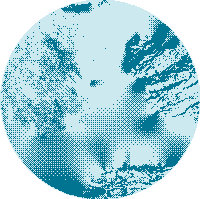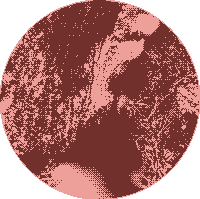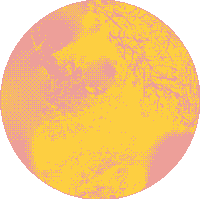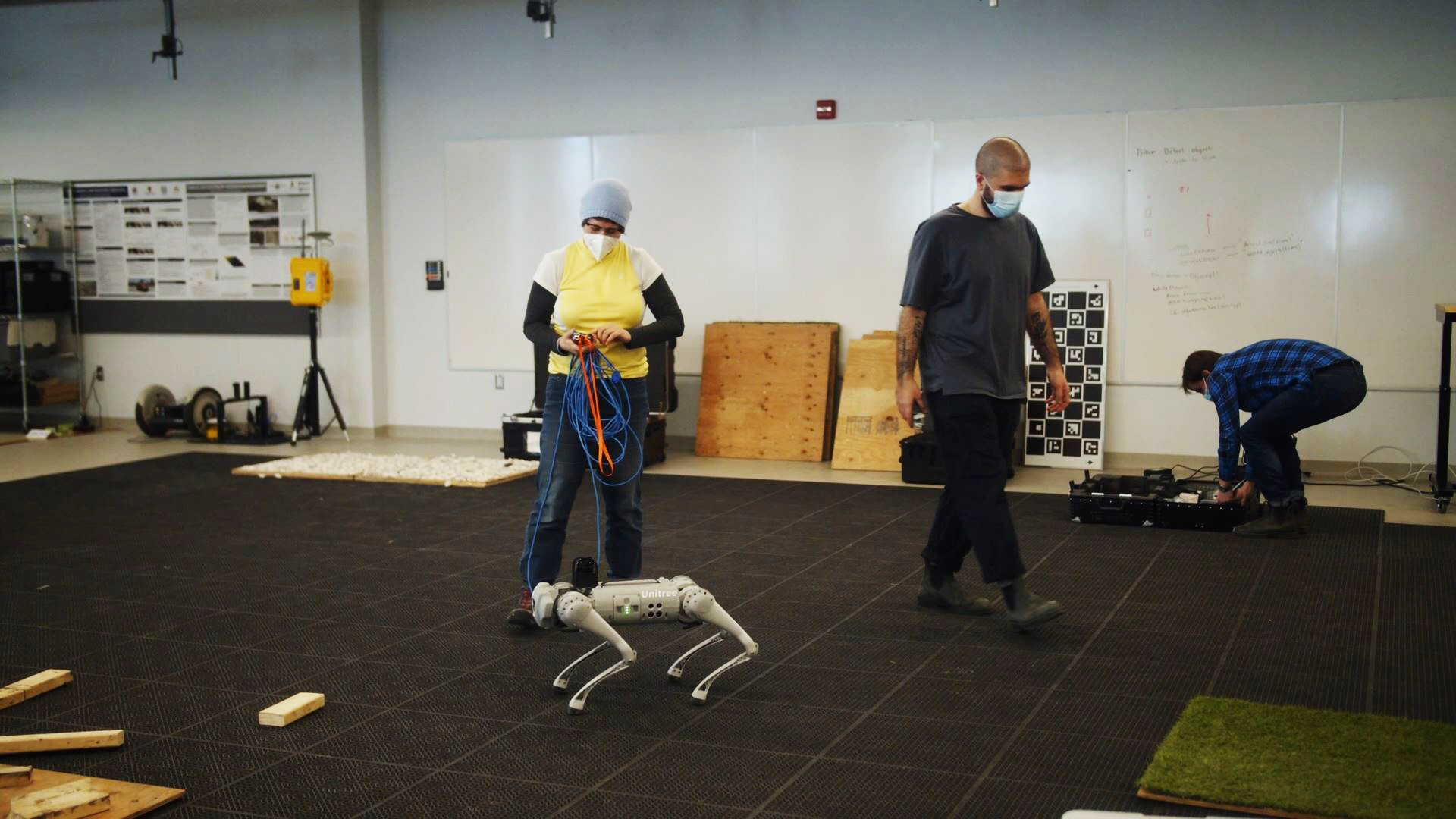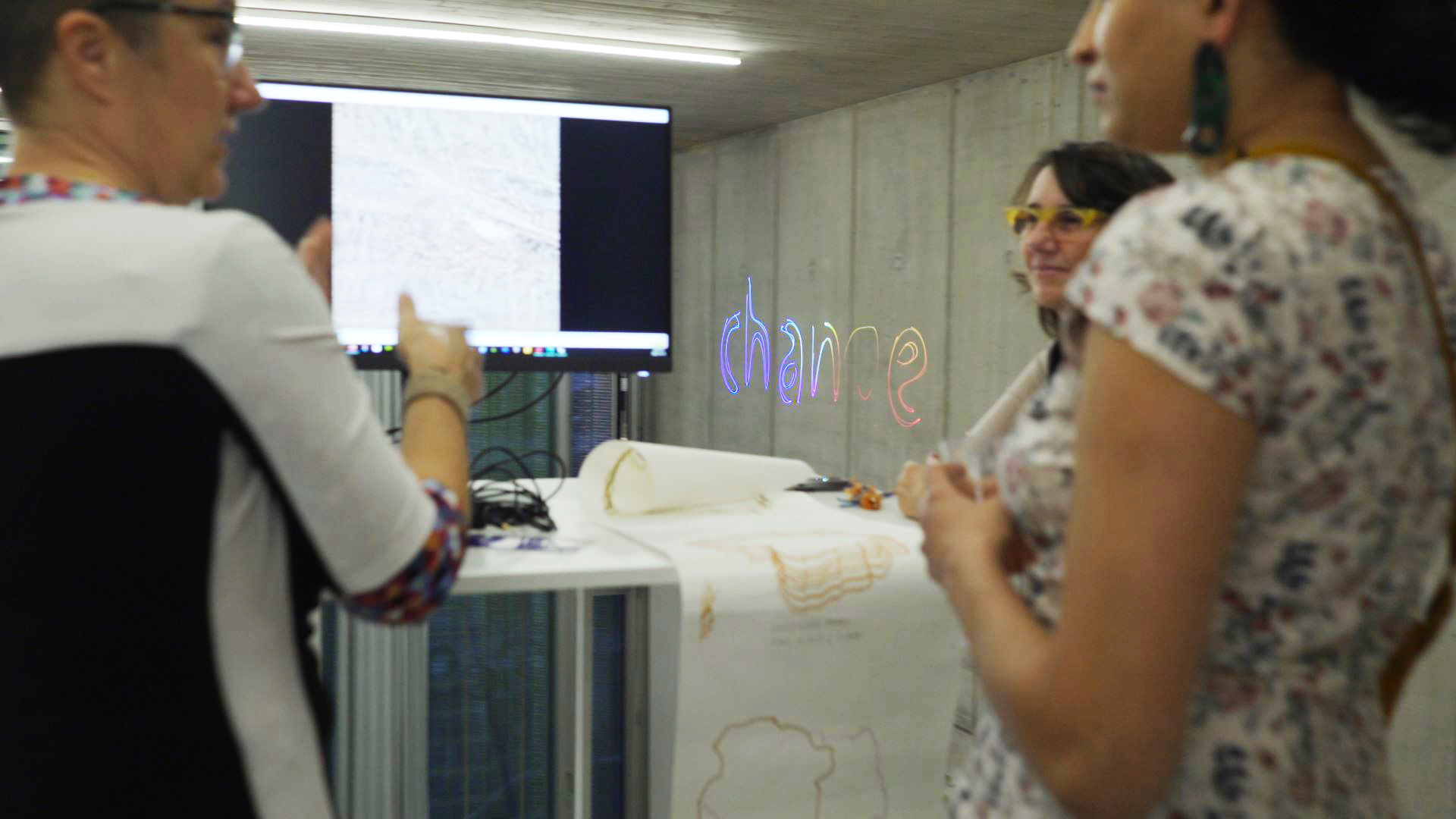Ferment AI
Overview
Ferment AI was a 12-month residency for nine interdisciplinary Canadian artists prototyping approaches to leveraging artificial intelligence and other cognitive technologies in their practice. In March 2022, the cohort was hosted at Queen’s University’s Ingenuity lab to advance in-development prototypes and receive technical and development support from an interdisciplinary research community. The prototypes were then further developed and shared as part of an exchange in Berlin in October 2022.
Artificial intelligence is transforming how we live, work, and play. Whose interests and points of view inform their development?
The debate is often framed as a binary where AI is either a solution to our collective problems or a path to our destruction. This residency sought a polyphony of response. By complicating and diversifying the discourse around AI and its uses we surfaced more nuanced approaches to the ethics, aesthetics, and deployment of cognitive technologies while encouraging cross-sector collaborations and partnerships.
The ultimate goal was to break down barriers to leveraging emerging technological systems and to make them available to a broader community. To do this required a diversity of worldviews and perspectives. Art and culture became means of informing and engaging the community in conversation about what comes next.
Canadian artists have much to offer the field, but often struggle to access and build comfort with these tools. Through partnerships with the Ingenuity Lab and others we began the process of engaging a broader community and while positioning Canadian artists at the centre of artistic explorations about how and why we use AI.
AI offers incredible opportunities to create new works and explore new business models. Barriers to exploring the challenges and opportunities of this technology are high. Moreover, priorities related to equity, justice, and climate are often marginal to the development of AI, in service to institutional priorities and the pursuit of efficiency and growth.
Many are concerned that machines will exceed human intelligence. We should also be troubled that humans are being asked to behave more like machines in service to the liberating ambitions of scale and efficiency. Notions of autonomy, identity, and community are being reworked under the influence of artificial intelligence.
We should avoid blaming the nature of algorithms for the current situation. Technology is inevitably an expression of the objectives of the broader culture. A more pluralistic approach to AI development will create greater diversity of use. Artists offer the possibility of new ways of applying the technology to their own cultural and creative practices as well as our collective challenges. AI offers incredible opportunities to improve health, economic, social and other outcomes but too often are put in service to the needs of a small number of institutions.
Learning programs around artificial intelligence are generally embedded in large institutions with few opportunities for independent practitioners to develop competence. We see this residency as serving as a model for partnership, for building capacity in artists to work with AI and as an approach to bridging the gap between large institutional actors and artists interested in integrating innovative digital approaches into their work.
Residents were provided hands-on training in applying these tools to a range of practices with support from mentors from within the arts and from other sectors. The work was organized around cross-sector collaborations and partnerships. The broader AI field recognizes the need for diverse participation in imagining applications and the support was strong.
The artistic community is severely under-represented in both mapping out the possibilities of AI and integrating it into their operations. This project provided a framework for the integration of AI in a nuanced way into individual practices while expanding the literacy of the sector to consider AI as an element of recovery and ongoing resilience.
Interest in the residency was extremely high, and by sharing the work, the platforms, and the ongoing connection to corporate, government, and academic partners we continue to support the long-term resilience of the sector while introducing new resources and expertise to promote subsequent rounds of invention and creation.

